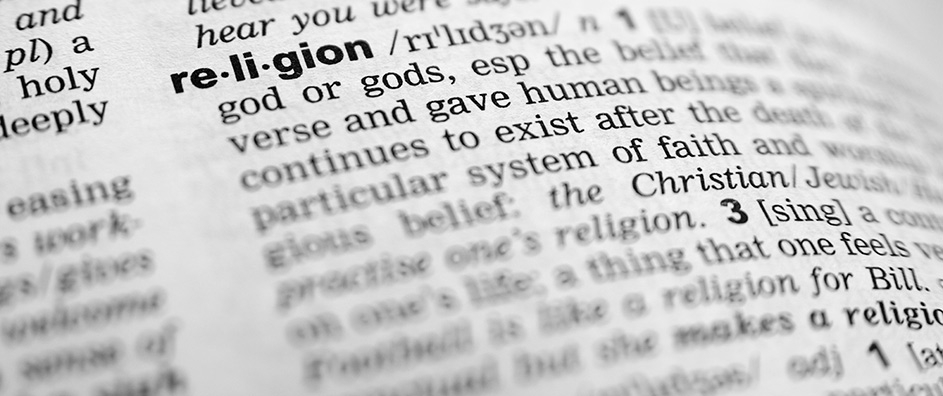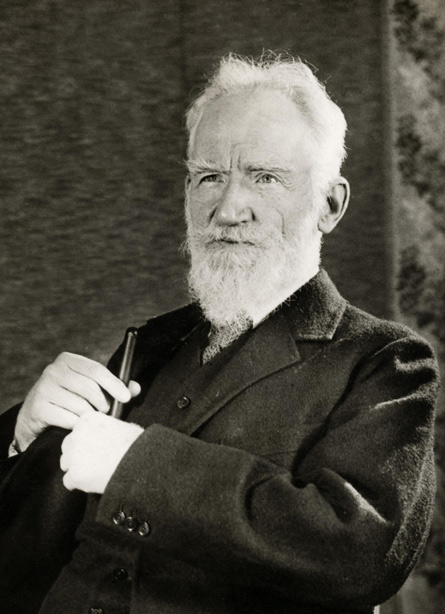The views expressed in our content reflect individual perspectives and do not represent the authoritative views of the Baha'i Faith.
Take the word “Religion”…
Please, take it.
It causes as much miscommunication as that other loaded word . . . science. If we use either word as if we think we know what it means, we may be surprised by the results.
George Bernard Shaw wrote that England and America were two peoples divided by a common language. I think the fault lines of language lie even closer together. This is something I’ve been aware of for a very long time, but it was underscored for me recently in a discussion of the idea that people can be good without religion.
A group of people allegedly speaking the same language fell into a debate about the concept, or entity, or reality of religion. One party to the discussion was certain that religion was inherently evil; they produced stories from history (usually involving genocide and other atrocities) to prove it. They defined religion as blind belief in a litany of irrational doctrines. I suggested that we seek a common definition of the word “religion” and/or discuss the various meanings we held. Another party suggested that we needed to stop using the word entirely if it made people uncomfortable.
An interesting idea. One that raises the question: What word do we substitute in its place?
Back to that later. What I’d like to do now is look at some ideas about the meaning of the word “religion.” The word comes from the Latin “religio” meaning “to bind together.” Nice idea. According to scripture, that’s essentially its purpose. Christ, for example, speaks repeatedly of the unity of the believers, Buddha of the unity of the sangha—the community of devotees. The Baha’i writings agree, telling us that:
The fundamental purpose animating the Faith of God and His Religion is to safeguard the interests and promote the unity of the human race, and to foster the spirit of love and fellowship amongst men. Suffer it not to become a source of dissension and discord, of hate and enmity. – Baha’u’llah, Gleanings from the Writings of Baha’u’llah, p. 215.
Baha’u’llah’s son, Abdu’l-Baha, explains further:
True religion is based upon love and agreement. Baha’u’llah has said, “If religion and faith are the causes of enmity and sedition, it is far better to be nonreligious, and the absence of religion would be preferable; for we desire religion to be the cause of amity and fellowship. If enmity and hatred exist, irreligion is preferable.” Therefore, the removal of this dissension has been specialized in Baha’u’llah, for religion is the divine remedy for human antagonism and discord. But when we make the remedy the cause of the disease, it would be better to do without the remedy. – The Promulgation of Universal Peace, p. 232.
Bold words. Don’t they suggest that the solution is to just get rid of religion?
No. What needs to be gotten rid of isn’t religion—at least by Baha’u’llah’s and Abdu’l-Baha’s definitions. It’s the dogmatism that pretends to own the word.
Abdu’l-Baha defines true religion as:
. . . the road of the divine Kingdom. It involves the acquisition of praiseworthy attributes, heavenly illumination and righteous actions in the world of humanity. This pathway is conducive to the progress and uplift of the world. It is the source of human enlightenment, training and ethical improvement—the magnet which attracts the love of God because of the knowledge of God it bestows. This is the road of the holy Manifestations of God; for They are, in reality, the foundation of the divine religion of oneness. There is no change or transformation in this pathway. It is the cause of human betterment, the acquisition of heavenly virtues and the illumination of mankind. – The Promulgation of Universal Peace, p. 179.
That’s the meaning the Baha’i scriptures attach to religion. Clearly my secularist colleagues might disagree. But when those colleagues rail against the Crusades, or the various pogroms or atrocities committed in the name of religion (which are dwarfed, as an objective look at history shows, by bloodshed committed for secular reasons), they’ve got my full support and the full support of Baha’is as a community.
We’re all standing on the same soapbox. The difference is this—the recognition that there is a true, beneficial thing called religion that has nothing to do with dogmatic adherence to divisive manmade beliefs.
You May Also Like
Comments


















More and more thinkers opine today that science without the guidance of true religion steers society into an abyss of materialism, in both definitions of the term. The public’s perception of militant mullahs and paedophilic priests reduces clergy’s moral authority and so dims the light of belief that organized religions are often shunned by the young and we name ethics a science. The chronicles of history teach us too that religion without the transparency of science misleads us into dogma and superstition. From the plurality of religions and their many teachings, how is one to discern truth? Complicating all this the various claims about infallibility enter the fray. To untangle this Gordian knot one must above all else make an independent investigation of the truth, an outstanding and eternal principle of the Baha'i Faith .